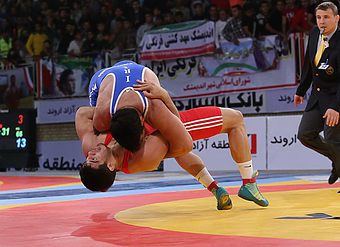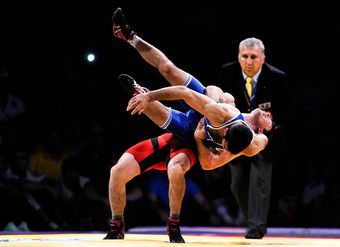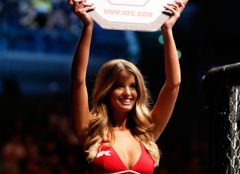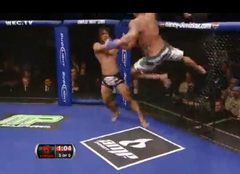Short memory
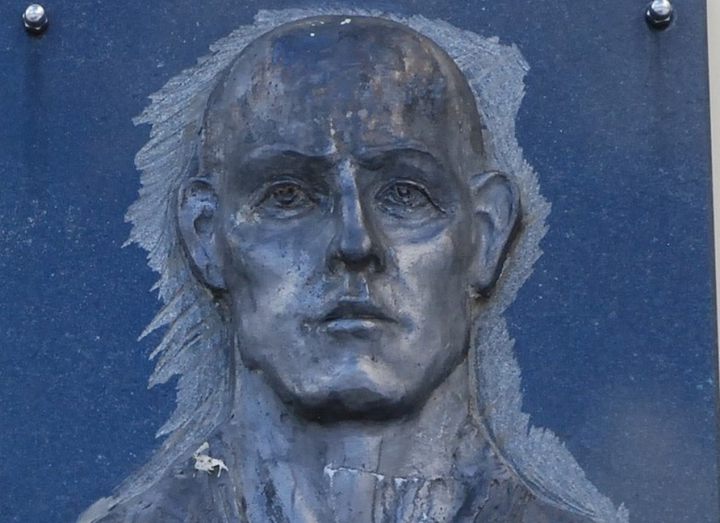
Since the childhood well remember the feature film "Genius of Judo" of the outstanding Japanese master of the film Akira Kurosawa unprecedented then overseas wrestling. The movie was black-and-white and was shown in club of the Aleksandrovsk-Sakhalin fish factory …
Then, in the 60th years of the past eyelid, neither I, nor my contemporaries didn't know that our fellow countryman, aleksandrovets Vasily Oshchepkov was the founder of judo in Russia, and together with it self-defense arts without weapon.
Last year 120 years from the date of its birth were executed.
To get on the opening ceremony of a memorial board devoted to memory of our fellow countryman which took place on September 10 on the eve of City Day celebration, me, unfortunately, it wasn't possible. Locals gathered in Aleksandrovsk-Sakhalin at the building of branch of school No. 6 where the children's and youth sports school nowadays settles down, to honor memory of the great athlete and the uncommon person.
On a memorial plate inscription:
"Oshchepkov Vasily Sergeyevich.
25.12.1892 (06.01.1893) — 10.10.1937.
Native of a post Aleksandrovsky,
Soviet scout,
one of founders of wrestling of sambo".
By and large, the event of the All-Russian scale became the action, known to a small circle of experts and veterans of sports of the former northern capital of the island.
***
In the spring of 2001 as a part of delegation of the Sakhalin region, Khabarovsk territory and Seaside edges left in Tokyo on educational training where managed to visit Kadokan-dzyudo where brilliant sports career of our fellow countryman began.
The school of wrestling of Kadokan was founded in 1882 by professor of Kano who was the founder of judo. By century of its education the international center "Kadokan" was constructed. Near the eight-story building with the center name — a bronze sculpture of the founder of judo Dzigaro Kano.
Having made creation and studying of judo by a main goal of life, professor of Kano sought for judo distribution as means of national physical development. Continuing the activity with Kadokan's societies on wrestling and improving rules of judo, professor became the first Asian member of the International Olympic Committee in 1909. It promoted a wide circulation of judo around the world. Judo was presented as an official sport at the Olympic Games in 1964 thanks to support of fans and sponsors around the world.
The documents confirming the fact of receipt there of Vasily Oshchepkov on October 29, 1911 are still stored in the Tokyo Kodokan's archives. And in 1913 in the Japanese magazine there was a note in which it was said that "the Russian bear" achieved the and received the masterful category. The black belt to Vasily Oshchepkov was tied by Dzigaro Kano. To achieve it, the applicant had to, without descending from a tatami, to win three fights in a row against owners of black belt. Later, in 1917, Vasily visited again Kadokana and received the following masterful degree — the second is given. It was the first Russian and the fourth European in the history who was awarded by then a black belt...
The judo center "Kadokan" carries out function of Mecca of the international judo. It is some kind of completely self-sustaining firm containing not only committees of federations, but also the international center for training of highly skilled judoists of world level.
And today from all countries there come to Japan trainers and athletes to study judo in "Kadokana" though it isn't so simple. It is necessary to pay for participation in training sessions very high sum, and only few well-founded federations or athletes can afford it. The international division is presented by 4 courses created on level of readiness of students. The foreigners studying judo at Kadokan school, are invited for work with youth after return to the countries.
Take pride that sports school from which in due time graduated (we called it "sportivka") which affected my vital and professional plans, bears now Vasily Sergeyevich Oshchepkov's name.
***
At the same time, having arrived recently to Aleksandrovsk-Sakhalin, I couldn't but pay attention to details which are evident at once: on the sculptor a bas-relief — the characteristic crack is higher than shoulders of the great athlete, and on the face inadmissible chips …
What it is negligence of the creator or our northern severe climate? (By the way, the sculptor Vladimir Chebotaryov who has made a memorial board, on a ceremony of its opening didn't arrive).
Anyway, danger of destruction of a memorable sign, in my opinion, takes place.
In general, someone can tell, whether there is for monuments (memorable signs) a concept "warranty period" and what it is necessary to do when there is something similar?
We have to hold in remembrance the athletes who have made the significant contribution to history of world sports. Preservation of memory of the well-known fellow countrymen is especially important for inhabitants of the small cities of Russia whom Aleksandrovsk-Sakhalin treats also. Vasily Oshchepkov's name on a sports Russia map at careful attitude to again established memorable signs and due information support will attract to us admirers of this remarkable sport since all ends of the country and from abroad, to awaken interest to sports, to history of Sakhalin.
Here to us to learn at our neighbors. I will remind that in Japan there is a collecting donations for production and installation in Poronaysk of a monument to the wrestler of sumo greatest in the history of Japan Taykho Koki (the Great Phoenix). Its real name Koki Nayia or Ivan Markiyanovich Boryshko. He was born on May 29, 1940 in the settlement of Sikuk (nowadays Poronaysk) on Sakhalin. His father — the Ukrainian — went in for agriculture, mother was a housewife. In 1945 mother deported to Hokkaido where Koki Nayia seriously was fond of sumo wrestling. For the sports career he won 32 tournaments of an imperial cup, this record still it happened to repeat to nobody. To it appropriated a rank of the honourable citizen of Japan which 21 inhabitants of the country have only.
The monument is supposed to be established in the territory where the house of the athlete settled down earlier and where it spent the first years of life.
And memory to Vasily Oshchepkov while is visually immortalized by only a memorial board and that to a descent begun to collapse...
Petr Pasyukov.







